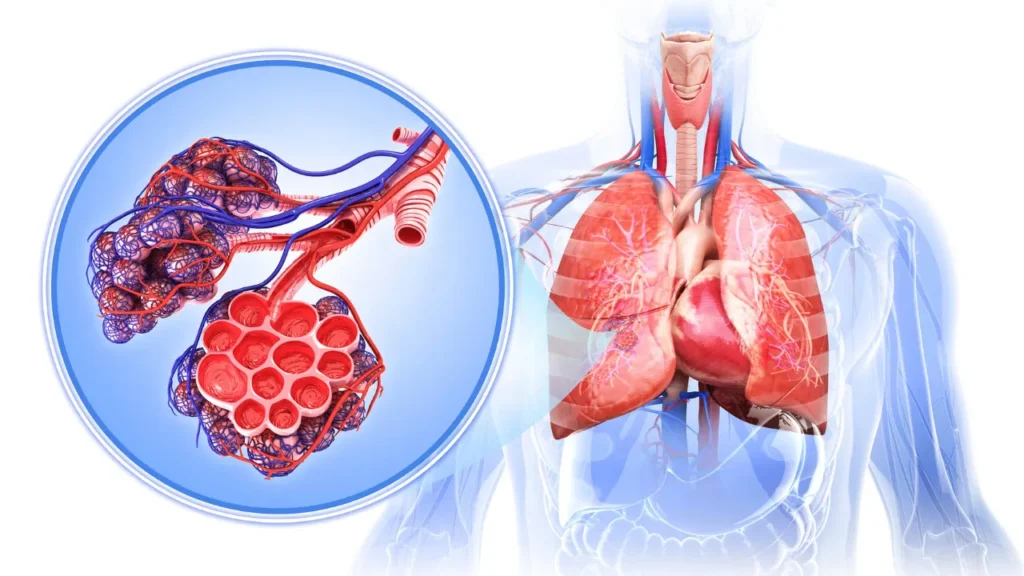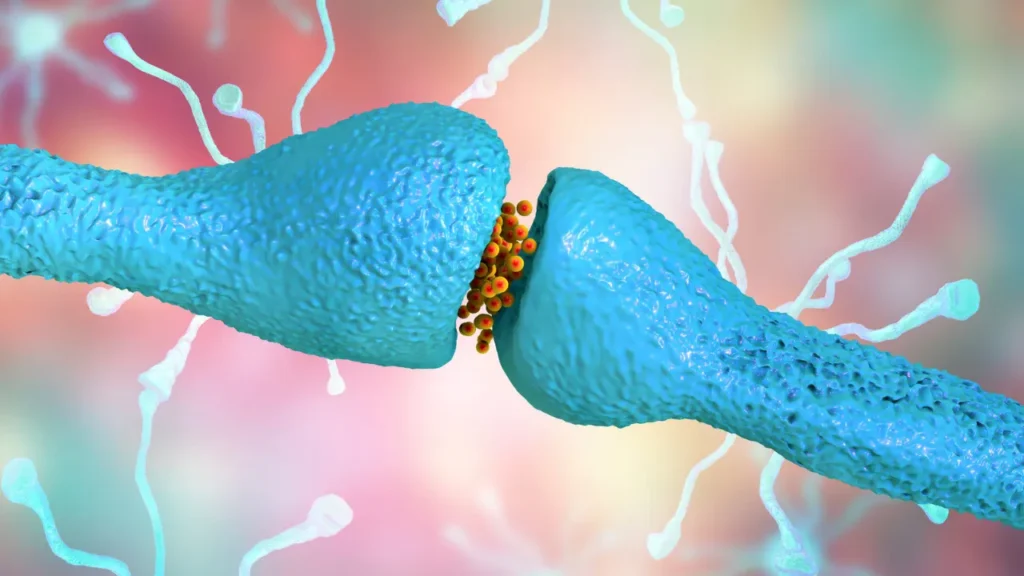Spanish origanum oil, which comes from the origanum vulgare plant, also referred to as oregano, has attracted interest due to its possible nootropic properties, which include improving mental clarity, alertness, and focus. With an emphasis on its chemistry and physiological mechanisms, this extensive page explores the nature, health advantages, ideal dosage, side effects, possible drug interactions, and safe consumption of Spanish origanum oil.
You May Also Like:
Should You Try CBD for Focus? Here Are the Facts.
CBD for Concentration: 3 Epic Benefits that Boost Your Focus
Spanish Origanum Oil: Benefits, Dosage, Side Effects, Drug Interactions, and Other Important Information is an original (NootropicsPlanet) article.
Nature of Spanish Origanum Oil
The flowering tips of Origanum vulgare are steam-distilled to extract the oil known as Spanish origanum. This essential oil’s strong antibacterial, anti-inflammatory, and antioxidant qualities stem from its high concentration of phenolic chemicals, including thymol and carvacrol. The oil’s therapeutic value is attributed to its distinct chemical composition, which also contains flavonoids, terpenes, and terpenoids.
Health Benefits of Spanish Origanum Oil
Spanish origanum oil has a wide range of health advantages, including the ability to improve cognitive function and antibacterial qualities. We go over the many health advantages of this powerful essential oil below:
Antimicrobial and Antifungal Effects
Spanish origanum Oil is well known for having antifungal and antibacterial qualities. Carvacrol and thymol, the main active ingredients, have been demonstrated to damage the cell membranes of a variety of bacteria and fungi, causing cell lysis and death. Because of this mechanism’s exceptional efficacy against a wide range of pathogens which include strains of bacteria that are resistant to antibiotics, Spanish origanum oil is a good adjunctive or alternative treatment for infections. Research has demonstrated its effectiveness against fungi like Candida albicans and bacteria like Escherichia coli and Staphylococcus aureus.
Antioxidant Properties
Strong antioxidant qualities are exhibited by the ingredients of Spanish origanum oil, especially the phenolic chemicals carvacrol and thymol. By scavenging free radicals in the body, these antioxidants neutralize them before oxidative stress can harm cells. Chronic illnesses like cancer, diabetes, and cardiovascular disease have been linked to oxidative stress. Consequently, Spanish origanum oil’s antioxidant activity may contribute to the prevention of these ailments.
Anti-inflammatory Effects
Although the body naturally reacts to damage or infection with inflammation, persistent inflammation has been linked to a number of illnesses, such as heart disease, arthritis, and neurological diseases. It has been discovered that Spanish origanum oil reduces inflammation by preventing the synthesis of mediators and cytokines that promote inflammation. This activity may provide a natural treatment for those with chronic inflammatory disorders by reducing pain and swelling linked to inflammatory problems.
Neuroprotective Benefits
Spanish origanum oil may shield brain cells from harm and enhance cognitive processes like memory, attention, and learning, by regulating neurotransmitter levels. This essential oil also offers antioxidant and anti-inflammatory properties by blocking enzymes like acetylcholinesterase. These characteristics imply that Spanish origanum oil has the potential to treat neurological illnesses like Parkinson’s and Alzheimer’s.
Enhancement of Cognitive Function
The chemical makeup and physiological effects of Spanish origanum oil are linked to its possible nootropic benefits, which include improved focus and general cognitive performance. The oil may enhance neuronal communication and efficiency by influencing neurotransmitter release, specifically dopamine and serotonin, and blocking acetylcholinesterase activity. If you want to improve your mental clarity and productivity, you should look into Spanish origanum oil because of the potential for improved cognitive function.
Gastrointestinal Health
Spanish origanum oil’s antibacterial qualities can be beneficial in balancing the gut microbiota and preventing bacterial infections. Additionally, because of its antispasmodic properties, it can help with digestive pain including bloating and cramping, which makes it a helpful adjuvant in the treatment of digestive problems.
Respiratory Health
The essential oil has also been used to improve respiratory health, thanks to its antibacterial, anti-inflammatory, and expectorant characteristics. It can treat respiratory symptoms such as coughs, colds, and bronchitis by improving mucus clearance and making breathing easier.
Spanish origanum oil has numerous health advantages, including antibacterial, antioxidant, anti-inflammatory, and neuroprotective qualities. Its ability to improve cognitive function and guard against neurodegenerative disorders, as well as its benefits for gastrointestinal and respiratory health, make it a remarkable natural therapy that deserves further investigation in clinical trials.

Chemistry of Spanish Origanum Oil
Spanish origanum oil is valued in both conventional and modern medicine due to its unique chemical composition, which is mostly derived from the Origanum vulgare plant. Thymol, a monoterpenoid phenol with strong bioactive qualities, and carvacrol are the main active ingredients of Spanish origanum oil. In addition to these, the oil has a wide range of additional components, such as terpenes, terpenoids, and flavonoids, as well as γ-terpinene and p-cymene, which are precursors for the production of thymol and carvacrol in plants.
Carvacrol and thymol are particularly interesting because of their capacity to penetrate cell lipid membranes, allowing them to exhibit potent antibacterial and antifungal actions by damaging microbial cell membranes. This activity is assumed to be related to the molecules’ lipophilicity, which allows them to integrate into the lipid bilayer and destroy the structural integrity of cell membranes. Furthermore, these chemicals have high antioxidant qualities due to their ability to donate hydrogen atoms to free radicals, neutralizing them and avoiding oxidative stress that can damage cells and DNA.
The oil’s anti-inflammatory qualities are a result of the presence of several terpenes and terpenoids, which prevent the production of mediators and cytokines that promote inflammation. On the other hand, flavonoids offer extra antioxidant advantages and might boost the oil’s capacity to alter pathways related to inflammation and pain perception.
Physiological Mechanism of Action of Spanish Origanum Oil
The physiological effects of Spanish origanum oil on the body and brain are primarily attributed to its major constituents, carvacrol, and thymol, which influence several biochemical pathways:
- Neurotransmitter Modulation: Carvacrol has been shown to affect neurotransmitter release, particularly dopamine and serotonin in the brain, which are critical for regulating mood, alertness, and cognitive functions. This modulation may enhance mental clarity, focus, and overall cognitive performance.
- Enzyme Inhibition: Both carvacrol and thymol can inhibit the activity of acetylcholinesterase, an enzyme that breaks down the neurotransmitter acetylcholine. By inhibiting this enzyme, Spanish origanum oil may increase acetylcholine levels, enhancing memory and learning processes. This mechanism is similar to that of some drugs used to treat cognitive disorders like Alzheimer’s disease.
- Antioxidant and Anti-inflammatory Mechanisms: The antioxidant properties of the oil’s constituents can protect neurons from oxidative stress-induced damage. Oxidative stress is a condition characterized by an imbalance between free radicals and antioxidants in the body, leading to neuron damage and impaired function. By neutralizing free radicals, Spanish origanum oil can potentially mitigate this damage. Moreover, the oil’s anti-inflammatory effects, mediated through the suppression of pro-inflammatory cytokine production, can protect against neuroinflammation, which is implicated in various neurodegenerative conditions.
- Cell Membrane Stabilization: The lipophilic nature of carvacrol and thymol allows these substances to incorporate into neuronal cell membranes, possibly stabilizing them against external stresses and modulating ion channel activity crucial for nerve impulse transmission. This stabilization can enhance neuronal resilience and function.


Optimal Dosage of Spanish Origanum Oil
The lack of studies and clinical trials has made it difficult to determine the ideal dosage of Spanish origanum oil for nootropic effects. It is advised to take tiny dosages of the diluted oil internally, usually no more than 1 to 4 drops. Diluting essential oils in a beverage or carrier oil is needed to reduce sensitivity and possible toxicity. In order to establish the right dosage for therapeutic reasons, each patient’s unique health status and objectives should be taken into account when speaking to a healthcare professional.
Side Effects of Spanish Origanum Oil
Although diluted and used sparingly, Spanish origanum oil is generally thought to be harmless, but for certain people, it can have negative effects such as gastrointestinal upset, allergic reactions, and skin irritation when used topically without sufficient dilution.
Potential Substance Interactions with Spanish Origanum Oil
Certain drugs and supplements, especially those with sedative, anticoagulatory, and anti-diabetic effects, may interact with Spanish origanum oil. Because of its capacity to modify enzyme activity, certain medications’ metabolisms may be impacted, potentially changing both their safety and effectiveness. Therefore, before adding Spanish origanum oil to their routine, people using medication should speak with healthcare providers.


Best Responsible Use of Spanish Origanum Oil
To utilize Spanish origanum oil responsibly for its nootropic benefits, individuals should:
• Use low doses at first to gauge your tolerance.
• Properly dilute the oil to prevent toxicity and irritation.
• Speak with medical professionals, particularly if you’re managing an illness or using medication.
•Consider possible interactions between substances and side effects.
Spanish Origanum Oil:
Conclusion
Spanish Origanum Oil has the scientific name of the origanum vulgare plant. The supplement is made by a method known as steam distillation of the plant’s flowering tips to extract the oil. The oil contains a very distinct chemical composition that is made up of flavonoids, terpenes, and terpenoids. Spanish origanum oil has gained attention not only for its potential antimicrobial and antioxidant properties, it is also benefitcial to cognitive function and respiratory health, which may contribute to overall health and wellness.
Although some studies suggest promising benefits of Spanish origanum oil, additional research is needed to confirm its effectiveness and safety in clinical settings. If you are planning to buy Spanish Oiganum oil, be sure to get it from a reputable seller that is certified and well-known for producing quality products only. You should also evaluate the risks and benefits that the supplement may bring before taking it.


References:
- Essential Oils of Oregano: Biological Activity beyond Their Antimicrobial Properties. Retrieved from: https://www.ncbi.nlm.nih.gov/pmc/articles/PMC6152729/
- Oregano (Origanum Vulgare L.) Essential Oil Provides Anti-Inflammatory Activity and Facilitates Wound Healing in A Human Keratinocytes Cell Model. Retrieved from: https://pubmed.ncbi.nlm.nih.gov/32679285/
- Oregano (Origanum Vulgare) Consumption Reduces Oxidative Stress and Markers of Muscle Damage After Combat Readiness Tests in Soldiers. Retrieved from: https://pubmed.ncbi.nlm.nih.gov/36615794/
Important Note: The information contained in this article is for general informational purposes only, and should not be construed as health or medical advice, nor is it intended to diagnose, prevent, treat, or cure any disease or health condition. Before embarking on any diet, fitness regimen, or program of nutritional supplementation, it is advisable to consult your healthcare professional in order to determine its safety and probable efficacy in terms of your individual state of health.
Regarding Nutritional Supplements Or Other Non-Prescription Health Products: If any nutritional supplements or other non-prescription health products are mentioned in the foregoing article, any claims or statements made about them have not been evaluated by the U.S. Food and Drug Administration, and such nutritional supplements or other health products are not intended to diagnose, treat, cure, or prevent any disease.
